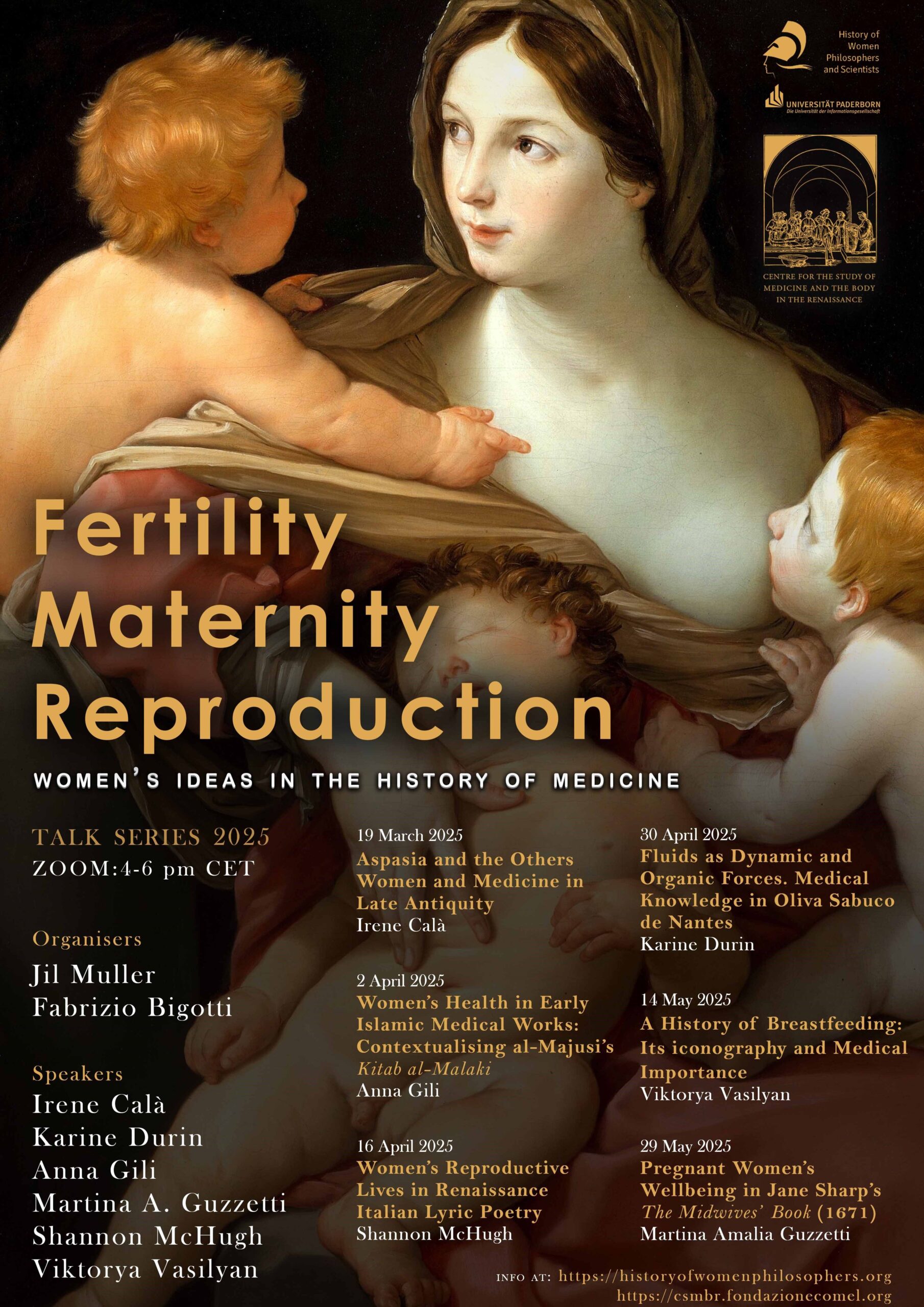Medical texts from Late Antiquity are invaluable for our understanding of lost medical sources. This is particularly true for the medical work of Aetius, a physician native to Amida, lived in the first half of the sixth century AD, and author of a 16-book treatise known as Libri medicinales. This compilation is considered one of the most significant and source-rich works of its time. While female sources in medical texts appear quite limited or entirely absent—such as in the works of Oribasius of Pergamum—they undoubtedly represent one of the primary sources for the last of the Libri medicinales, where Aetius lists a certain Aspasia as a specialist in various medical practices related to gynaecology and obstetrics.

New Voices Women’s Ideas in the History of Medicine
Talk | 4:00 PM - 6:00 PM | Dr. Jil Muller, Dr. Fabrizio Bigotti
Irene Calà: Aspasia and the Others: Women and Medicine in Late Antiquity
The prominence of Aspasia seems, at times, to overshadow that of the more renowned Soranus of Ephesus, who is considered the foremost authority on women’s diseases. From this observation, we will attempt to trace the remnants of a medical literature written by women, echoes of which are preserved in the medical texts of Late Antiquity. The selected passages related to fertility, pregnancy, and childbirth management will be discussed, highlighting the physical and psychological approach that characterizes Aspasia’s medical practice and the concrete role played by women in the care of women.
About the Speaker…
Irene Calà is research associate at the Institute for Ethics, History, and Theory of Medicine at Ludwig-Maximilians-Universität München. She is specialist of Greek medicine in Late Antiquity, with a focus on the continuity of medical knowledge from antiquity through the Renaissance. She is currently working on the first critical edition of the unpublished books of Aetius of Amida, in the DFG project led by Mathias Witt.
Everyone is welcome to attend. Please register here and you will get the Zoom-Link after registration.

- DATE
- 19 March 2025
- TIME
- 4:00 PM - 6:00 PM
- COSTS
- none
- INSTITUTION
- Dr. Jil Muller,
- Dr. Fabrizio Bigotti









 share
share tweet
tweet